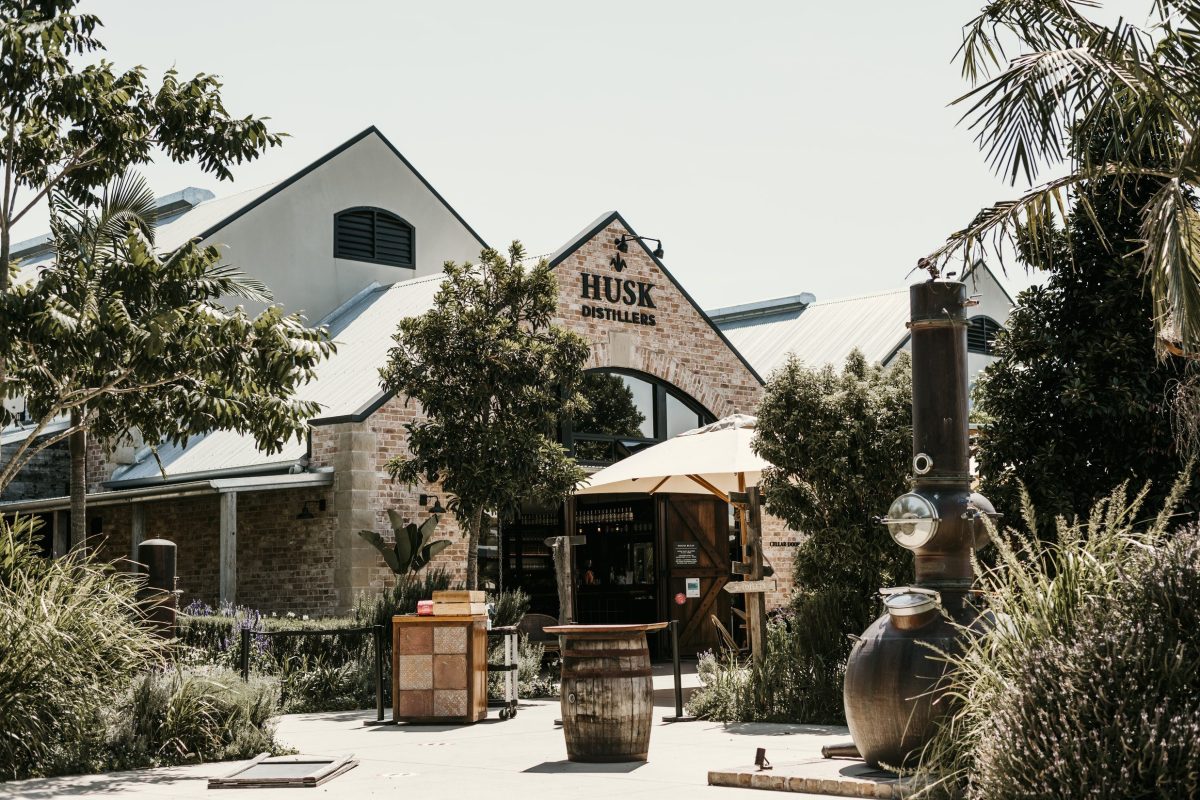Husk Distillery is a farm-to-bottle distillery based in Northern NSW, which is making impressive moves in environmental sustainability.
The farm-to-bottle ethos means that there are no transport miles and no waste during the distilling process. Husk enacts minimal intervention farming practices and avoids harsh chemicals, as well as using solar power and almost half a million litres of captured rainwater in the distillery.
Paul Messenger, founder of Husk Distillery, spoke to National Liquor News about the distillery’s sustainable practices.
NLN: Why is sustainability important to Husk Distillery?
PM: Our whole philosophy is about our connection to the land, our place, the Caldera Coast and the people who live, work, and play here. We see Husk as a part of the fabric of this place and we want to ensure that our distillery, our hospitality venue and our brands are still here long after we are all gone, becoming a part of the culture and identity of this place. Sustainability on so many levels is fundamental to this vision.
NLN: Could you take us through what that means in practice?
PM: Our farm to bottle philosophy is first and foremost about connection to place, we are a part of our community and our rum reflects the spirit of this land, its ‘terroir’. By its inherent nature this approach minimises our environmental footprint and is fundamentally sustainable.
We grow our own sugar cane and harvest our crops green, returning the tops and trash to the soil where it provides a thick blanket that reduces weed growth, enhances soil biota and stores carbon.
Cut cane is transported a few hundred metres to our mill, the only privately owned mill in Australia designed and built to make rum from fresh cane juice.
Juice is pumped to a series of large tanks where it will spend four days fermenting. The bagasse, waste fibre from the crushed cane, is stock piled for use as mulch, converted to compost or sold to make dietary fibre.
The fermented juice, called wash, is transferred to our 6000-litre copper pot still where our distillers extract the heart of our spirit for maturation and bottling. Spent wash is fed through a system of cooling tanks back to the paddock into a series of large cattle troughs, all powered 100 per cent by gravity. Spent wash is rich in yeast nutrient and sustains our small herd during the cooler dryer months from August to November.
A portion of our rum spirit will be transferred to our tank house to rest for several months and slowly reduced to bottling strength to make Pure Cane, our unaged white juice rum, or cane spirit, the most-pure expression of our terroir. The remainder will be transferred to the barrel house to fill small barrels that will age gracefully in our sub-tropical climate for many years before blending and bottling.
All of this takes place on our 60-hectare property situated across the river from Tumbulgum in the Caldera Coast of far northern NSW. Of that total, 12-hectares of original, uncleared lowland rainforest is reserved for native forest regeneration work. This is an important connection to the original vegetation of the valley and an important store of native flora.
As well as our production facility, we also operate a popular hospitality venue offering tours, tastings, succulent meals and world class cocktails in a relaxed, open-air setting with expansive views across the paddocks, over the river to Mt Warning/Woolumbin and the Caldera escarpment beyond.
All food waste is sent to the local resource recovery centre for composting. Spent botanicals from gin making are either re-used in our kitchen or composted onsite. All trade and domestic wastewater is treated on site and used to irrigate grass lands on our property.
We also have expansive roof-top solar and the electricity we generate is used to supplement our power demands or is exported back to the grid.
Harriet Messenger, General Manager of marketing and hospitality, added: “We minimise our general waste through four different composting streams and four different recycling streams. Our cattle eat a lot of our organic distillery waste, including botanicals from Ink Gin and spices from Husk Bam Bam – except for cinnamon quills. They don’t like cinnamon!
“In terms of land care, more than 4000 native plants have been planted on Husk Farm since we moved in. This year, a young male koala has moved into a plot of new forest next to the distillery, which we planted in 2017. He is very cute.”
NLN: What are you most proud of?
PM: I am immensely pleased with our achievements to date in building our business from scratch on the banks of the beautiful Tweed River, over the last 11 years.
I would say that I am proud that our vision and hard work has attracted so many terrific people who have made this place and that vision a part of their lives. We have some truly extraordinary people from our exceptional, Martinique-born Master Distiller and his fearless back-of-house team to our marketing, admin and hospitality leaders and their outstanding staff. Mandy and I also take great pleasure in seeing so many visitors to our place visibly enjoying the experience with family and friends, it’s a place of happiness.
NLN: If you could give retailers one piece of advice about selling eco-conscious drinks, what would it be?
PM: Be honest.

